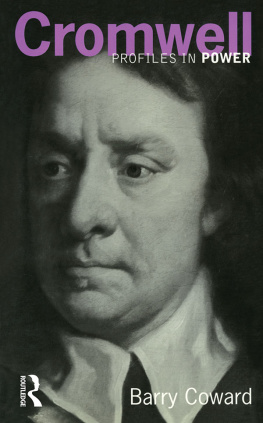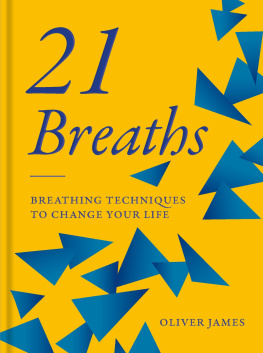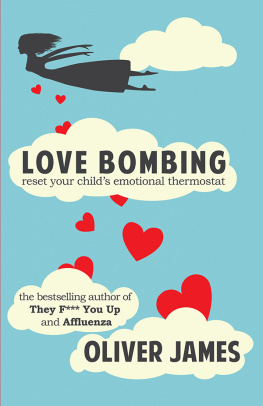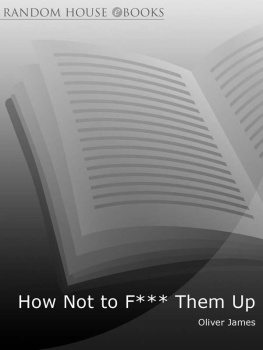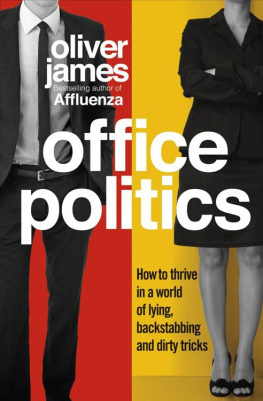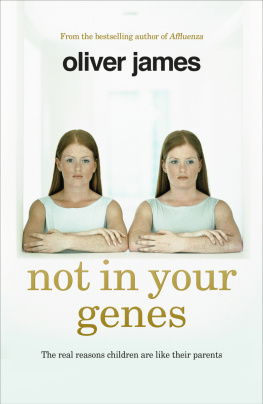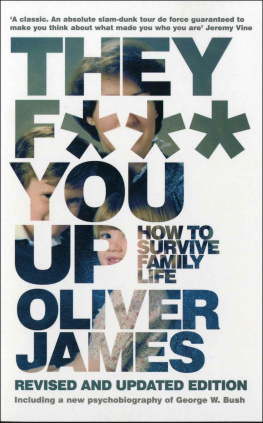MELBOURNE UNIVERSITY PUBLISHING
An imprint of Melbourne University Publishing Limited
Level 1, 715 Swanston St, Carlton, Victoria 3053, Australia
www.mup.com.au
First published 2018
Text James Oliver, 2018
Design and typography Melbourne University Publishing Limited, 2018
This book is copyright. Apart from any use permitted under the Copyright Act 1968 and subsequent amendments, no part may be reproduced, stored in a retrieval system or transmitted by any means or process whatsoever without the prior written permission of the publishers.
Every attempt has been made to locate the copyright holders for material quoted in this book. Any person or organisation that may have been overlooked or misattributed may contact the publisher.
Text design by Phil Campbell
Cover design by Phil Campbell
Typeset by J&M Typesetting
Printed in Australia by OPUS Group
9780522869989 (paperback)
9780522870312 (hardback)
9780522869996 (ebook)
Acknowledgements
Acknowledgement is a social practice. It is a practicing of recognition and gratitude, a practicing of some understanding of relatedness. It is designed to articulate encounter, to remember, revisit, reimagine encounter, and learn from those engagements.
An acknowledgments section in a book is a commonly understood and appropriate custom, preceding the main body of the manuscript. Furthermore, in this country, Australia, where we are also always on country, it is customary and appropriate to acknowledge the land, language and people of whose country we are on. This is a relational, ongoing practice, never finished, and always in the making.
Acknowledgement of Country
As an uninvited guest on First Nations territory, I acknowledge the Aboriginal and Torres Strait Islander peoples of this country and continent, where I have the privilege to live and work. I pay my respects to all Traditional Owners and Elders, past and present. More specifically, I also pay my respects to the Elders past, present and emerging, from the Kulin Nationthe alliance of five First Nation tribes, the Boonwurrung, the Dja Dja Wurrung, the Taungurong, Wathaurong and Wurundjeriwhere Narrm is situated.
The greater majority of the work in the production and publication of this book has been undertaken in Narrm, that place we commonly call Melbourne, including its greater environs. I have received and experienced very many warm Welcomes to Country from Elders, and I acknowledge the benefits of this, for the culturally safe enjoyment of these lands, its waterways and communities.
Publisher
As editor of this publication, I acknowledge first the support of Melbourne University Publishing. My sincere gratitude is extended to them, in particular my editor at MUP Academic, Catherine McInnis. Her patience, I am sure, is legendary, and thanks are due also to her colleague Louise Stirling, for additional support and excellent guidance.
Contributors and Colleagues
This book is the result of a large number of partnerships and collaborations. My warmest and heartfelt thanks goes to all the contributors to this book. They have been incredibly professional (patient again and again) and responsive with my (typically evasive) brief. They are all incredibly thoughtful practitioners and professionals, moving in the world with purpose, and they have been a pleasure to work with. Everyone has contributed unique and generous insights.
This book project has its origins in a graduate research symposium we developed at the Centre for Cultural Partnerships (CCP), in the Victorian College of the Arts (VCA), University of Melbourne, from 20132016. Developed through funds from CCPs research-training budgetand some supplementary funds for research partnerships, from the Faculty and Universitycollaborations were enabled across Australia and internationally. In particular, I will note the generous grant and support through the University of Melbournes Macgeorge Fellowship, for the visit of Professor Anne Douglas from Grays School of Art, RGU, Aberdeen, in 2014. Other contributions in this volume come from various lecturers and graduate researchers at the former CCP, and yet others from my wider practice and research activities. This includes colleagues in my new role at Monash Art, Design and Architecture (MADA), Monash University. Everyone has in some manner contributed to the research training and exposition that CCP facilitated.
Following the closure of the CCP in 2016, I therefore make a very particular mention and acknowledgement of the generous support (moral and substantive) from my new colleagues in the Department of Design at MADA. This includes specific support for the copyediting of this book.
Din Heagney
I will make a very specific acknowledgement here to Din Heagney. He has been an incredible support and companion with the copyediting of this manuscript, and its many voices and registers. He has significant experience as a managing editor for major publications, and I am extremely grateful for his involvement in this project. At times he has effectively been an assistant editor, acting as a sounding board for my not infrequent thinking-out-loud, contributing his own thoughtful comments and observations.
Centre for Cultural Partnerships
In December 2008, the Hon Julia Gillard, MP and Deputy Prime Minister of Australia at that time, launched the Centre for Cultural Partnerships (CCP) at the Victorian College of the Arts. In December 2016, it was closed by the Faculty of the VCA and MCM, University of Melbourne.
At the time of its closure, it was at the height of its capacityand still growing. There were in the region 80+ graduate students enrolled (coursework and research candidates), and many more alumni over the years. There were also around 15+ people employed on various contracts, including core staff and also sessional teachers and research assistants.
The Centre, in its various forms of practice, had a tangible impact on many lives across Victoria, Australia and internationally. The collection and calibre of authors here in this volume clearly attests to that, but not exclusively. The closure of the Centre caused very evident distress, significantly for its many students and stakeholders. There was wide public awareness and community comment. A snapshot of the student response and wider legacy and feeling can be found here: www.saveccp.info. I acknowledge the efforts of all these passionate, intelligent and creative people. I fully expect that the work of the staff and students is now only more widespread, enhancing other cultural and educational institutions.
Home, Family, Friends
As ever, I am grateful to family and friends for their unstinting support, succour and strength in whatever I do; especially my partner, Victoria Stead, and our children, Calum and Libby.
I am a Hebridean Gael (a Sgitheanach, a native of Glendale, traditional MacLeod country, on Duirinish, the Isle of Skye, An t-Eilean Sgitheanach). I acknowledge my ancestors nowour community, culture and land, in and on which I was raised, and imagine and see everyday. I acknowledge their strengthto hold strong, in some measure, against the onslaught of violence and rupture (material and immaterial)to win native land rights, and to prevail against the complete elimination of their language and culture.






